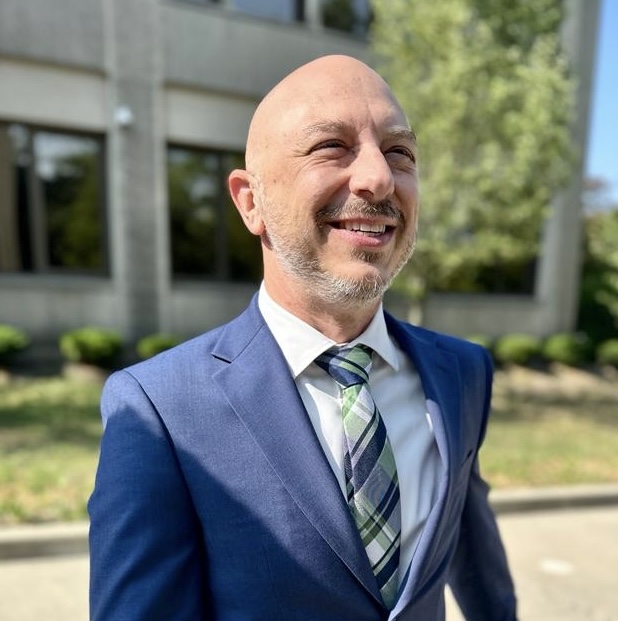




Our presentation with showcase project ASCENT. The purpose of Project ASCENT is to expand access to high-quality STEM learning and career opportunities for students with disabilities and develop a vertically-aligned K-12 data science pathway for all students, including those from traditionally underrepresented populations in STEM.
The core of our project is an eco-friendly, sustainable production-level, high-tech vertical hydroponic farm, solar array, and rain catchment system. Through the authentic task of managing a high-tech hydroponic farm and related business, students in our Life Skills support program will learn essential STEM and entrepreneurial skills and will be prepared for new STEM careers, such as the horticulture technician program at Bidwell Traning Institute. This farm was specifically selected because it is the ideal vehicle to provide relevant STEM experiences and expanded STEM career opportunities for students with disabilities. Our aim is to develop and share a model that districts can replicate, thus expanding access to meaningful STEM learning and career opportunities to all students with disabilities across the United States and beyond.
Participants will hear about lessons learned, best practices, challenges, and the impact of learning with technology through this project. This presentation will provide both a district-level and classroom-level view of Project ASCENT so that participants will be able to replicate this program within their own context.
Content: Content will include an overview and goals of Project ASCENT so participants have the context for this initiative; district administrators speak about how they fund, support, and sustain this project and how it aligns with our strategic plan; and teachers discuss how they incorporate this project into the day-to-day reality of the classroom and how it supports STEM, career, and life skill development for students with disabilities. Woven throughout the presentation will be video clips showcasing students performing and discussing all aspects of learning related to planning, running, and maintaining an agricultural technology-based business with real-world clients.
Time:
Overview and Context: 5 minutes
District-level Perspective: 10 minutes
Classroom Experience (STEM, Career, and Life Skills): 25 minutes
Student Experience: 10 minutes
Q&A: 10 minutes
Process: Participants will engage in a variety of interactions with peers and the presenters throughout the session, including back-channel opportunities, peer-to-peer conversations, interactive brainstorming, and Q&A.
Our presentation will showcase Project ASCENT. Project ASCENT is addressing two pressing needs. First, STEM-related jobs are far outpacing other occupations, a shortage of qualified candidates exists (Brookings Institute, 2017; Fayer, Lacey, & Watson, 2017). In addition, students with disabilities (SWD) are underrepresented in the STEM workforce, and 85% of students with disabilities are either underemployed or unemployed after high school graduation (Griffiths, Brady, Riley, Alsip, Trine, & Gomez, 2021). Across K-12, students with disabilities are underrepresented in STEM courses and related educational activities. This limits student career opportunities and transitional outcomes. Second, with the ongoing digitization of our lives, we live in a data-saturated world, and understanding data has become an essential skill for work and citizenship (Marr, 2018). While fluency in data science and data literacy is essential to thriving as citizens and members of our workforce in this technology-rich, data-filled world, relevant curricula for these foundation skills are severely lacking across K-12 education. Lack of data science skills limits career opportunities for students.
Through a focus on agricultural technology and data science – two areas directly connected to CS and STEM careers that are currently experiencing incredible growth – Project ASCENT is addressing these pressing needs with two interrelated initiatives: First, are expanding access to high-quality STEM learning and career development for students with disabilities by a) supporting a student-run high-tech hydroponic farm and related business, b) developing a “Partners in STEM” co-teaching model, and c) establishing a career pathway in partnership with a local training center. Through co-taught “Partners in STEM” project-based learning units, students will learn STEM skills necessary to operate the farm. Partnerships with local organizations will enable students to gain the necessary entrepreneurial skills. Data from the farm’s artificial intelligence-powered software, the SmartFlower, and the rain catchment system will provide relevant and meaningful data critical to our second initiative: Developing, in collaboration with Stanford University, a K-12 data science pathway enabling all students to acquire the essential skills necessary to a) formulate statistical investigative questions, b) collect, consider, and analyze data, and c) effectively interpret and communicate about data.